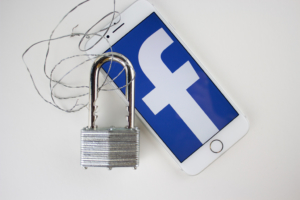Do Not take that Stupid Facebook Quiz
Where should you live in the world? What Game of Thrones family are you in? What is the food that best describes your personality? All of these answers are given and found by doing quizzes on Facebook. You have surely seen them if you use Facebook, and have may have taken these quizzes, but you definitely might want to consider stopping. If you have ever used one of these quizzes, you have probably given these third-party apps permission to access some of your personal data. Not only does this affect you, it might also affect the people on your friends list. How does it affect you? These answers can sometimes crack password reset questions,
 Here are some tips that you can use to protect yourself:
Here are some tips that you can use to protect yourself:
Use Two-Factor Authentication – Almost all social media sites offer two-factor authentication. This allows you to further lockdown your accounts, as you won’t be able to sign in with only a password. Instead, you need a password and a code, which is often sent to you via text message. So, no one can log into your account even if they have your password, unless they also have access to your phone and texts.
Stop Taking Quizzes – The best thing you can do to protect yourself is to stop taking those quizzes. Though they look innocent enough, every click gives the company information on you. It’s true that not all companies collect your personal info, but you really have to do some digging in the terms of service to see if they do or not.
Check Your Privacy Settings – When is the last time you reviewed your privacy settings on Facebook? If you are like most of us, it’s probably been awhile. So, take some time to log in and do this. If you need a tip, choose to only share with yourself by clicking “Only Me” on all of the settings. That’s the safest, but after all, this is SOCIAL media, so you might want to pick and choose.
Look at What You Share – You should also look in your app security to find out what you are sharing with third-parties. You might be surprised at what you see.
Delete Old Accounts – Finally, make sure that you take a look at, and delete, any old social media accounts. If you don’t want to delete it, at a minimum, change your password. Also, Google yourself and see what accounts come up. If you can find it, you can bet that a hacker can.
Robert Siciliano personal security and identity theft expert and speaker is the author of Identity Theft Privacy: Security Protection and Fraud Prevention: Your Guide to Protecting Yourself from Identity Theft and Computer Fraud. See him knock’em dead in this Security Awareness Training video.



























